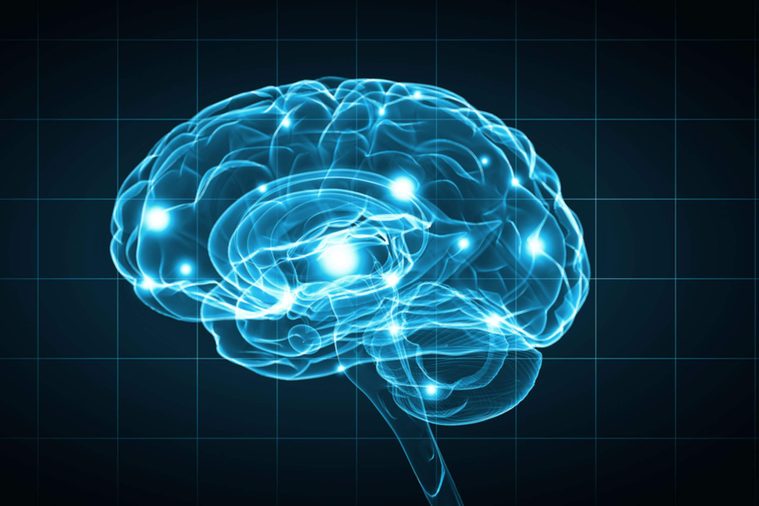
You use way more than 10 percent of your brain
When it comes to commonly repeated myths, the idea that you only use 10 percent of your brain is right up there. One survey found that half of college-educated people believe it to be true—but it’s not. “We use every part of the brain,” says Rawan Tarawneh, MD, an assistant professor of neurology in the division of cognitive neurology at The Ohio State University. “While brain regions are not necessarily all active at the same time, all brain regions are utilized to some extent over the day, depending on what we are doing—for example, reading, trying to solve a math problem, driving, talking on the phone, or sleeping.” Don’t miss these other 51 favorite “facts” that are actually false.

No one is either “left-brained” or “right-brained”
Even though we are right- or left-handed, it doesn’t mean we are right- or left-brained. The myth of having a dominant brain hemisphere may have come from experiments performed in the 1960s on people who’d had the connections (the “corpus callosum”) between their two halves severed. But most of us have brains that aren’t split in two, and thus function as one. “Research shows that almost all brain functions require the interaction of both hemispheres for these functions to be carried out accurately,” Dr. Tarawneh says. Each half may perform separate functions within a task—our ability to express and understand language happens in the left hemisphere, but other aspects of language processing, such as intonations, rhythm and stress of words, occurs in the right—but this is true for everyone, she notes. Learn the real reason people are right- and left-handed.

Men and women don’t learn differently
There are many differences between men and women, but it doesn’t mean that the sexes aren’t equal in their learning capabilities. “On average, men have larger brain volumes than women, while women have thicker cortices than men,” Dr. Tarawneh says. “The differences are not just anatomical—men’s and women’s brains seem to be wired differently to some extent.” She points to research by Diane Halpern, PhD, who found that women do better with verbal and writing ability, and men better with problem-solving and visuospatial skills. But, there may be a social component to this, and other research has shown both sexes performing equally in mathematics. “Men’s and women’s brains are more alike than they are different, and there is a lot of variability between individuals of the same gender,” Dr. Tarawneh says. Don’t miss these other 17 science myths that have been proven wrong.
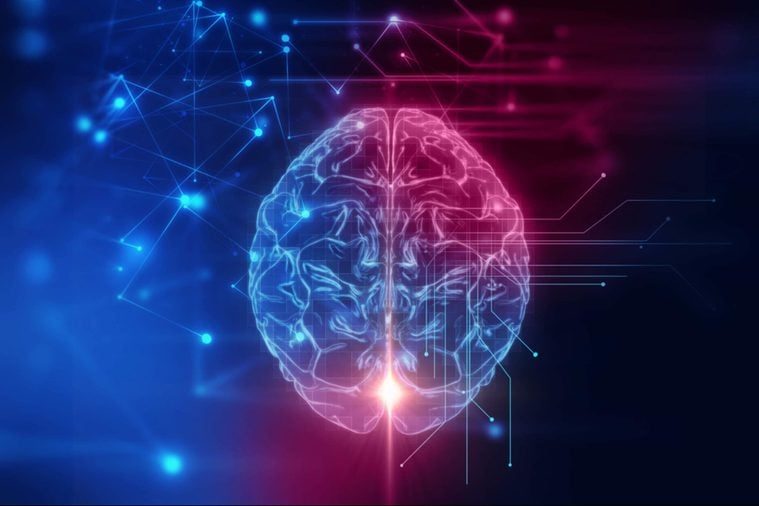
Size doesn’t matter—or does it?
Another ongoing debate is how your brain’s size impacts your smarts. “The size of the brain is not linked to intelligence or learning new material,” Dr. Tarawneh says. Comparing the brains of great thinkers, writers, and mathematicians after autopsy hasn’t yielded conclusive evidence that their size has a correlation to intelligence. Even among different species, research has shown that when it comes to brain-to-body ratio, the “smarter” animals don’t always have bigger brains. However, scientists have come up with an “encephalization quotient” that compares animals based on their relative body size—and humans finally come out on top. Check out these quirky habits that prove you’re smarter than everyone else.

The size of our brains cause us to be born “too soon”
The theory of the “fourth trimester” suggests that babies are born when their bodies are still very fragile in order to allow for their relatively large brains to have room to be delivered. (Here are more bizarre facts about newborns that doctors don’t tell you.) “I always tell my patients that all babies are born too soon,” says Harvey Karp, MD, author of The Happiest Baby on the Block and creator of the “smart sleeper” SNOO. “Think about it—a horse can walk on the very first day of life, but by comparison, human babies are super immature. They can’t walk, run, or even burp without help from Mom or Dad.” A horse’s survival depends on his body, but human survival depends on our brain. “So, our species evolved to evict our little genius babies from the womb three months early—before their heads get so big that they risk getting stuck in the birth canal,” Dr. Karp says.
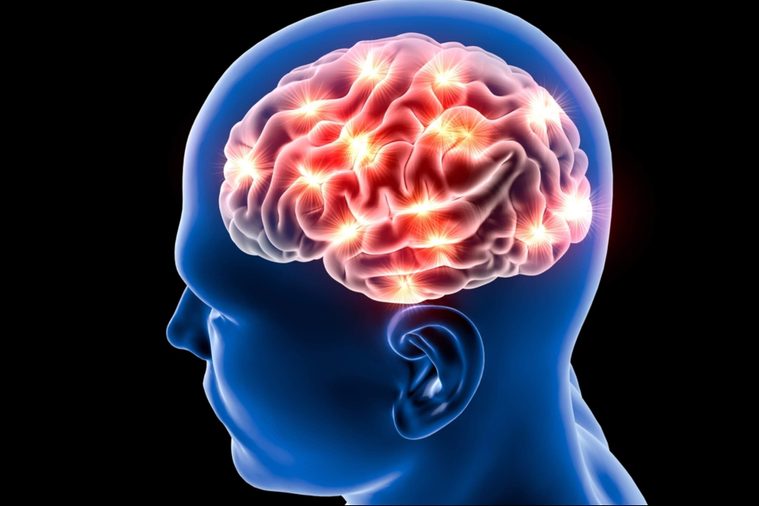
Brain folds have function
Although Dr. Tarawneh says that the number of folds, or gyri, in the human brain doesn’t always equal intelligence, they do have a purpose. The folds allow for more surface area on the outer layer, or cortex, of the brain. “The cortex is the computational part on the outer surface of the brain, where the majority of the brain cells are,” Dr. Tarawneh says. Monkeys and dolphins also have wrinkly brains, whereas the surface of mice brains are smooth. But, scientists are still researching how these folds develop.

The nature of intelligence isn’t known
You can fake being smart (especially with these easy ways to look like a genius), but what really makes us intelligent, if not brain size and folds? “Although we still do not know all of the biological processes that explain intelligence, intelligent people probably have better connections between the neurons, referred to as synapses, and their neurons have stronger networks in certain brain regions that allow the brain cells to communicate with each other more efficiently,” Dr. Tarawneh says. She notes that anatomy may have something to do with it, as some studies suggest more intelligent people may have thicker cortices (the outer part of the two hemispheres), particularly in some parts such as the parietal lobe.

IQ is not fixed
Although the origins of intelligence are still being researched, it does seem clear that IQ, or intelligence quotient, is not fixed—it can change throughout your life. In fact, some experts argue that there’s no such as thing as “IQ” at all, but that experiences and learning, as well as the testing itself, are variable and can change over time. Studies show our nutrition and other environmental factors may also impact brain power. “We used to think that once smart, always smart and vice versa—we now know that is wrong,” says Sandra Bond Chapman, PhD, founder and chief director of the Center for BrainHealth at the University of Texas at Dallas. “Science clearly reveals that the brain and our ‘smartness’ are anything but fixed. We continuously shape and rewire our brain by how we think.”
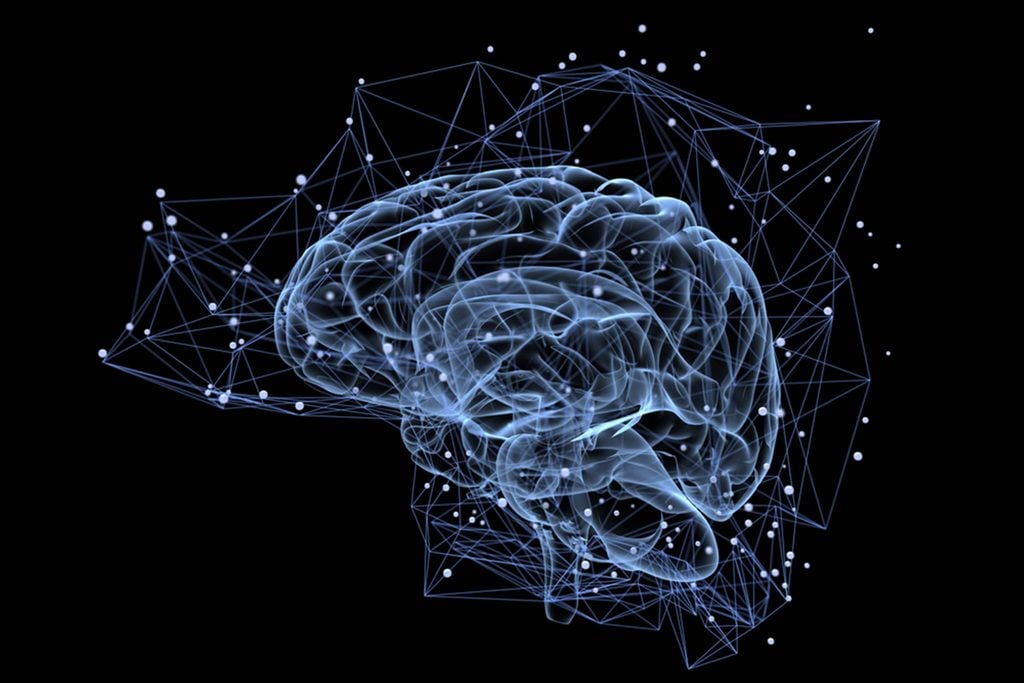
The brain changes as it ages
It’s true that certain aspects of our noggin change—some for the worse—as we age. “As we age, our brains normally shrink in size by about one to two percent every year after the age of 40,” Dr. Tarawneh says. “This occurs due to loss of brain cells, brain cells shrinking in size, and also some loss of the branches that neurons use to communicate with each other, referred to as dendrites.” But, the brain also improves as we age. Recent research has some good news—more than one-third of the neurons in the hippocampus are regularly renewed throughout life, according to a Swedish study. Learn how to recognize the 12 signs your brain is aging faster than you are.
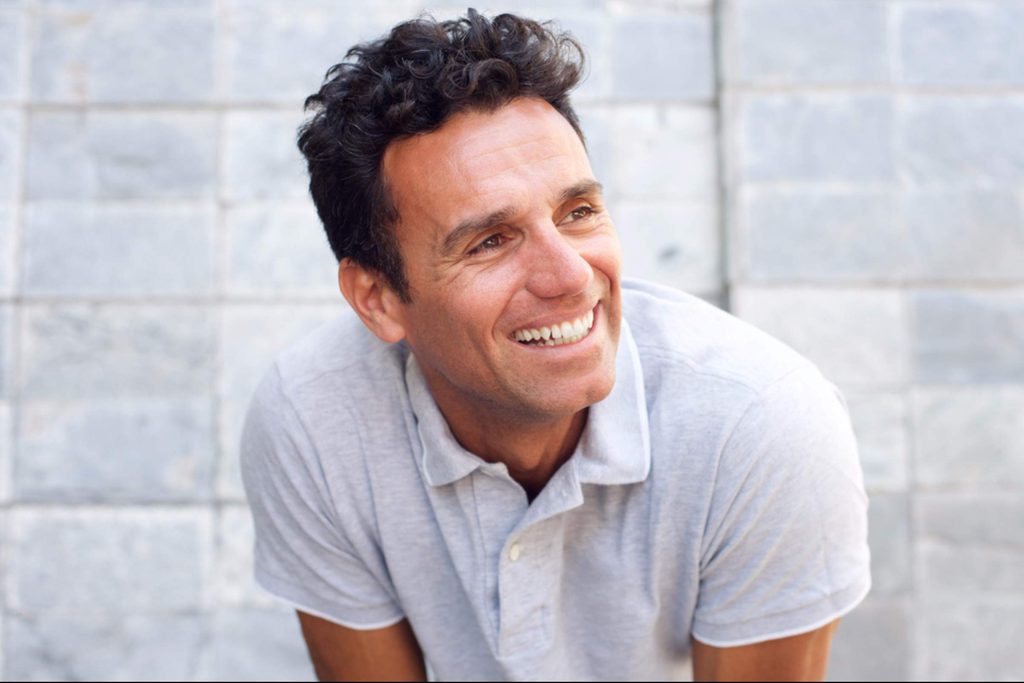
In some ways we get smarter as we age
Dr. Tarawneh points out that although some mental processes decline as we age, not all do. “Some of our brain functions such as short-term memory for minor details, processing speed, attention, the ability to multi-task, and visuospatial functions show some decline with healthy aging,” she says. “On the other hand, language functions tend to remain well-preserved as we get older.” In fact, research from Harvard and MIT show that arithmetic skills don’t peak until age 50, and vocabulary and “cumulative intelligence” (all the facts and knowledge you’ve acquired) peak even later, into our early 70s. To keep your brain young, start these habits your 80-year-old brain will thank you for doing today.

The brain can adapt
We now know that the way the brain works isn’t fixed, and can “recruit” other areas to compensate for damaged parts when needed. For example, we know that in certain cases, brain injury leads to brilliance. “The brain can adapt to injury such as stroke or head trauma, a process referred to as ‘brain plasticity,'” Dr. Tarawneh says. “The brain can ‘rewire’ itself so that healthy neurons can form new networks, or modify existing networks to compensate for the damaged parts of the brain.” Experiments in people who were born blind show that they use the visual parts of their brain, even though they can’t see. “One of the most important discoveries in the field is that brain activity can stimulate the process [of revising connections between neurons], which is referred to as activity-dependent plasticity,” she says. “Therefore, brain exercises and rehabilitation is a crucial step in recovery from brain injury, as it allows the brain to ‘re-learn’ functions that were lost due to trauma, in a way that is very similar to what is seen in early brain development.” Don’t miss these extraordinary stories of people whose brain injuries unleashed hidden talents.

The brain doesn’t mature until age 25
Although we’ve already legally become an adult, our brains aren’t fully grown up until around age 25 according to science. And your brain can continue to grow long past your 20s. Dr. Tarawneh says the brain matures from back to front, with the “prefrontal cortex” the last to finish developing. “The prefrontal cortex is responsible for higher-order thinking—referred to as executive function—such as judgment and problem-solving, decision-making, complex planning, organized thinking, personality development, and impulse control,” she says. “The reward centers of the brain are the most active during adolescence but are back to normal levels of activity by the mid-20s, so individuals become less sensitive to peer pressure and much better at risk management during their 20s compared to the adolescent years.” Don’t miss these proven ways to make better decisions.
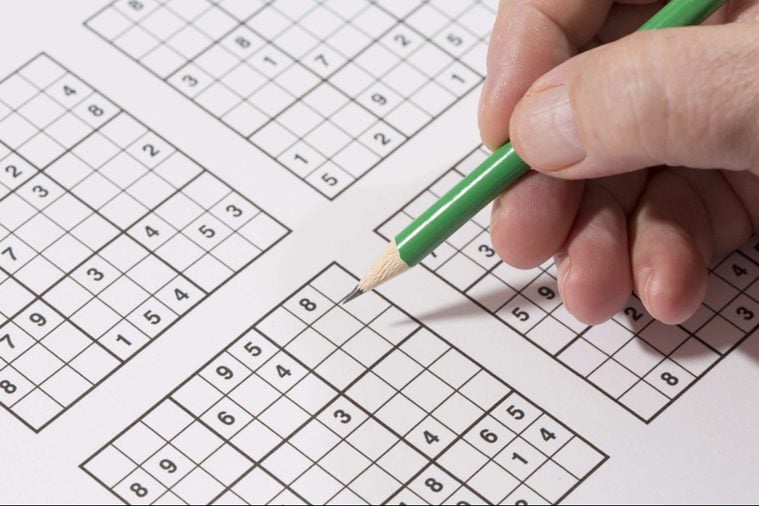
Brain games don’t make you smarter
You might think getting good at Sodoku or doing the daily crossword puzzle will enhance your brain’s capabilities, but sadly this isn’t the case. “If you do a lot of crossword puzzles, you can get better and better at completing crossword puzzles,” says Dr. Chapman. “The limitation is that the mental effort spent on this challenge, while building vocabulary, is unlikely to expand your higher-level reasoning abilities, such as decision-making, planning, and judgment.” Another example: Even if you get really good at remembering where the red cube was on a screen, it doesn’t mean that you’ll always remember where you put your car keys. A group of scientists actually have signed a statement refuting the claim that brain games can slow cognitive decline, saying there is as of yet no scientific evidence that they do. Find out how you can train your brain to have a superhuman memory.

But, you can strengthen your brain
Although brain games may not supercharge your thinking cap, you can train your brain by focusing on broader, more dynamic skills. “The best news is that we can do things to counter age-related brain decline and strengthen our ‘smartness’ into late life– especially when it comes to innovative problem solving and deeper level thinking,” Dr. Chapman says. “Reasoning and innovative thinking contribute to the intellectual capacity needed to respond effectively to our constantly changing real-life demands.” For example, learning a new language, a musical instrument, or other new hobbies have been shown to increase brain function. Here are 15 more brain-boosting activities with science on their side.

Social interaction is good for the brain
If you want to remain sharp as you get older, it’s not just about gaining knowledge but about social stimulation too. “Research suggests that meaningful social activities actually maintains or increases brain function,” says Anthony Cirillo, FACHE, ABC, president of the healthcare consulting firm The Aging Experience. “The memory center in the brains of seniors maintained their size and, in men, grew modestly after two years in a program that engaged them in meaningful and social activities.” So volunteering, visiting with friends and family, and staying active in social groups can actually help your brain as you age. Check out these other 15 things brain doctors do to prevent Alzheimer’s.

Classical music doesn’t make babies smarter
Forget the Baby Einstein DVDs. Although actually learning an instrument has been shown to benefit children’s brains, the “Mozart effect“—the idea that playing classical music while your newborn sleeps will boost his IQ—has not. “The idea was that if babies listen to music composed by Mozart, they would have a brain boost, so plenty of products quickly became available to offer such experiences for parents to give their children a mental edge from the start,” Dr. Chapman says. “Nonetheless, listening to Mozart will not do your babies, children, or you any harm and may build a lifelong appreciation for music—other music will achieve that as well.” These are the other incredible ways classical music makes you healthier.

Alcohol doesn’t actually kill brain cells
Another brain myth most of us believe is that drinking alcohol kills brain cells. Alcohol does take a toll on your body and brain, but it’s not the number of brain cells that are diminished with alcohol consumption—instead, it’s actually the production of new cells that’s impacted, according to research. A recent study from the UK found even moderate amounts of alcohol to have negative long-term damage on cognitive functioning. Here are more health benefits of quitting alcohol.

Multitasking interferes with the brain’s performance
If you think doing multiple things at once shows your smarts, you might be mistaken—research has shown that multitasking only causes us to take longer to do each task. “Multitasking hijacks your frontal lobes, the brain’s higher-order thinking center,” Dr. Chapman says. “When you think you are trying to multitask by doing two or more tasks at the same time, your brain is actually switching rapidly from one task to the other.” Multitasking reduces creativity, increases errors, lowers our ability to focus on what is most important, and increases problems with memory, sleep, and stress, she says. Instead, single-tasking is the way to go to be a high-performer. Here’s how to be more productive in your first hour of work.

The brain can get distracted
The brain isn’t always inefficient when doing two things at once—but when it comes to higher-order thinking, distraction can severely impact the brain’s ability to stay on task. “The main limit arises when both of the tasks require attention—for example, we can carry out a conversation while walking, but if you were walking over a complicated, uneven, and dangerous path, it would be difficult to carry out an involved conversation at the same time,” says psychology professor Steven J. Luck, PhD, director of the Center for Mind & Brain at the University of California, Davis. This is the main reason distracted driving, such as while chatting on a cell phone, is so dangerous. We can’t see the other person on the phone, we might have trouble hearing them, and our brain has to imagine their environment. Driving is often automatic, so “we can do a pretty good job of talking on a cell phone and driving much of the time, but we have problems when the driving suddenly requires attention, for example, when something unusual happens, such as another driver coming to a sudden stop,” Dr. Luck says. Find out how to recognize 12 signs of adult ADHD that go beyond everyday distraction.

The internet is info overload for the brain
The brain’s problem with distractions and multitasking could be a reason why studies show too much smartphone and Internet use isn’t good for the noggin. “Technology can be tremendously helpful, but allowing a constant influx of information and distractions can promote an ADHD-like state that exhausts your brain and erodes deep thinking and efficient information absorption,” Dr. Chapman says. “Watch out for ‘Google Brain’ where you constantly look up more and more information—this activity can gobble up mental energy.” Instead, take regular short breaks from screen time and shut off alerts, especially when working on important tasks. Don’t miss these other surprising ways technology is making us stupid.

“Smarter” people may just be better at filtering distractions
With this thinking on distractions and the brain comes another theory of intelligence—that smart people’s are just better at ignoring stuff that’s distracting. A study from the University of Rochester found that people with higher IQs were better at detecting the movements of small objects on a screen, but worse at detecting movements of larger, background-like objects. This may be because in nature, large movements like the wind in the trees are irrelevant, but the harder-to-see animal about to pounce is more important. So in our info-laden modern world, the ability to better focus might give some people an edge. Check out these people with higher IQs than Einstein.

Memory isn’t as fixed as we think
Although some of us do have impressive powers of recall, memories are in fact, constantly in flux—and this has the potential to alter how we remember things. “Our brain is not a ‘video cam’ that takes in information and stores it in our memory center precisely as it happens; instead we process scenes, conversations, and outings through our filter of rich experiences, perspectives, and thinking biases,” Dr. Chapman says. “This is why two people can witness the same event and come away with very different memories.” Even studies of so-called “flashbulb” memories of major events, like the Challenger explosion or the events of September 11, 2001, show our recollections aren’t always accurate. One good thing? We do tend to look back on our life through rose-colored lenses. “Our memories are altered and typically become more positive over time,” Dr. Chapman says. Check out the daily habits of people with an amazing memory.

You can train your memory with mnemonics
The brain can strengthen its powers of recollection through certain memory-boosting techniques. “If you want to remember something accurately, write it down as soon as possible,” Dr. Chapman says. “Our brain is not inspired by memorizing information, but by doing something with it.” Other mnemonic devices, or ways to “do something” in order to create a better memory, include repeating the information—when you meet someone, say their name out loud. Or, make up a phrase that rhymes: “Claire has red hair.” For longer stretches of info, create an acronym (at the market, we need MELT—milk, eggs, lemons, and thyme). These tricks work by forming connections in the brain with already established knowledge, reshaping brain networks to better remember. Learn about another simple activity that boosts memory by 20 percent.

Video games may increase brain power
If smartphones and the Internet can cause our brains to be overloaded, what about video games? Scientists are now discovering that video games may actually have benefits for the brain. A recent review of research found that gamers show improvements in the brain regions involved in attention. Evidence also exists that video games can increase the size and efficiency of the regions of the brain that control visuospatial skills. Researchers are even developing video games that can modify regions of the brain that control mood—there’s one video game that treats depression. (Check out these other little-known health benefits of playing video games.) But be careful—video games can also be addictive, due to the structural changes they cause in the brain’s reward system.

The brain is “awake” during sleep
Although it seems like sleep would be time for the brain to rest, there’s actually a lot going on in your noggin when you’re snoozing, which is one of the reasons sleep is important for the brain. “Even when we are sleeping, areas such as the frontal cortex that controls our higher-level thinking and awareness, and the somatosensory cortex that allows us to sense our surroundings, are active,” Dr. Tarawneh says. Studies have shown that even in deep non-REM sleep, our brain is more active than previously thought. Find out why waking up in the middle of the night could mean your brain is in trouble.

Being in a coma isn’t like being asleep
In soap operas, people always wake refreshed from comas, like they’ve just had a great night’s sleep—but according to research, this isn’t the case. Comas are a prolonged state of unconsciousness, but nothing like sleep. “Brain wave EEG readings for someone in a coma are very different from those of someone sleeping,” says sleep expert Richard Shane, PhD, creator of the Sleep Easily method. “During a coma, a person does not move, as people in a non-dreaming state do. A person in a coma is unresponsive to his or her environment and cannot be awakened by any stimulation, including pain.” Because of the lack of brain activity in comas, those who awaken may have damage or need to rehabilitation to get their noggin working again. Find out more about what it’s really like to be in a coma.

Amnesia doesn’t cause you to forget who you are
OK, so what about that other favorite movie trope of a character suddenly having amnesia and not knowing who they are? According to the Mayo Clinic, amnesia doesn’t usually lead to a loss of self-identity. Instead, there are two kinds: retrograde (the inability to recall past events) and anterograde (the inability to learn new information). A study from the UK found that amnesiacs also may have problems imagining scenarios for the future, because these are often based on past experiences. Another misconception: Severe amnesia is not usually the result of a head injury—and it’s certainly not cured by another one, like in the movies. Learn how to use your brain’s “delete” button to forget new memories.

Sleep deprivation to the brain is the equivalent of being drunk
The National Sleep Foundation recommends adults to get seven to nine hours of sleep, but many Americans are going without that much. The problem is, being sleep deprived can lead to mental function that’s equal to being intoxicated. “In repeated studies, after 17 to 19 hours without sleep, cognitive functioning and response speed were equivalent or worse than someone with a blood alcohol content [BAC] of five percent,” Dr. Shane says. “After 24 hours without sleep, performance indicators were equivalent to a BAC of 10 percent.” All states have a legal limit of eight percent, with commercial drivers held to four percent. The National Institute of Medicine estimates drowsy driving is responsible for 20 percent of car crashes. And you don’t need to be up for 24 hours straight for this effect—other research has shown that the cumulative effect of consistently getting six hours or fewer can lead to similar results. Check out these other 13 scary things that happen when you don’t have enough sleep.

Dreams have meaning
Why we dream has been the source of speculation for centuries. Although we’re not sure, many scientists now think dreams help us process emotions and events that happen during our waking hours. “The entire brain is active during dreams—the visual cortex, which creates images, and the limbic system, which deals with emotions, are especially active during dreams,” Dr. Shane says. Brain activity during dreaming increases to the same level as when we are awake, he says, and can be stimulated by what you experienced during the day. “Dreams then make associations with other experiences you have had, helping you integrate what you learned during the day,” Dr. Shane says. “Dreams can help you solve problems and increase your ability to cope with struggles and stress.” In addition, the freedom of control in dreams allows them to be more creative than waking thoughts. Learn why dreaming could ward off dementia.

Sex on the brain is a good thing
As if you needed another excuse to get it on, sex may actually help your brain think better as you age. Animal research has shown that sexual activity improved mental performance and the production of new cells in the area of the brain responsible for memory. A new study in humans found that older adults who were sexually active scored better on cognitive tests than those who weren’t. Sex may also reduce anxiety and depression, and help you sleep, which benefits brain health as well, and this recent study showed that having sex once a week can even help you live longer. Find out why sex could make you smarter, too.

Your brain thinks better after a vacation
Don’t feel guilty about taking time off from work—studies show that vacations actually help you to be more productive. “Our brains are not machines that can work endlessly without a glitch,” says psychologist Deborah Serani, PsyD, author of Depression in Later Life and a professor at Adelphi University. “This is why it’s important to give yourself downtime, to allow your brain to rest, reboot, and return to functioning anew. Doing so allows the regulatory systems of your brain chill out.” Science backs this up: A review of research confirmed that downtime is necessary for mental processing.

Here’s why you have “a-ha” moments
Another reason why downtime is so important? It frees your brain to think creatively, leading to more mental breakthroughs, or “a-ha” moments, than if you were constantly working. Although they can seem to come on suddenly, studies show these eureka moments are actually the result of your mind working in the background. Other research shows why it can actually be better to take a break from the task at hand in order to solve problems—this discontinuity prompts a mental restructuring that leads to the solution. Here are genius ways have more “eureka” moments.

You can train your brain to be happy
According to psychologists, our brains have a “negativity bias” that might have helped our ancestors better recognize threats to their survival. But in our modern world, it would benefit our brains to have a more positive outlook on life. “You can train your brain to think positively, formulate happy thoughts, and counteract negative ones,” Dr. Serani says. Employing new thinking habits are at the heart of psychotherapy, she says. “Changing how your think can improve how your feel,” she says. Studies show practicing new thinking strategies by being mindful about positive experiences can actually alter the structure of the brain. Try these other 23 ways to improve your mood instantly.

Meditation rewires the brain
There are many compelling benefits of meditation, but research suggest that it can actually change how the brain works. “Brain mapping studies show that meditation reduces anxiety, depression, and stress,” Dr. Serani says. “Meditation also sharpens attention and improves cognitive functioning.” One study showed that long-term meditation can actually help preserve the brain and save it from some of the effects of aging, and another found that meditation could improve concentration and memory. Don’t miss these other 12 health benefits you’ll get from 15 minutes of meditation.

Laughter is good medicine for the brain
Laughing has a positive effect on the brain’s functioning, so it is beneficial to work toward a more optimistic mindset. “There’s a long history of research showing laughter surges feel-good hormones dopamine and serotonin,” Dr. Serani says. “When you laugh, brain neurochemistry sends endorphins out to decrease pain, improve resiliency, and relax muscle tone.” When we hear something funny, our brain processes the language and decides if it’s humorous. After our emotions are triggered, the motor region of the brain leads to the physical reaction of laughter. Find out why laughing at these dark jokes could mean you’re a genius.

Changes in the brain can lead to mental illness
According to the National Institutes of Health, scientists are learning that mental illness is associated with changes in the brain’s structure, chemistry, and function—so it has a biological basis in the brain. “Stress and environment can set into motion brain changes like blood flow, neural circuitry, neurotransmitters, and other functioning” that can lead to mental illness, Dr. Serani says. A recent Stanford study found that different psychiatric disorders have the same atypical brain structure in certain areas of the brain, which could mean they all have a similar cause. Make sure you know which everyday habits increase your risk of depression.

Smells are strongly tied to memory
Whiffs of certain smells can instantly take us back in time to a particular memory, but what is it about our nose that is so strongly connected to our brain? One study from Brown University found that women had more brain activity when they smelled fragrances associated with positive memories than with fragrances they hadn’t smelled before. Other studies show more brain activity with olfactory stimuli than its verbal reference (that means the smell of roses, for example, instead of the word roses). Although scientists don’t totally understand why this happens, it could be because the parts of the brain that process smell, memory, and emotion are located close together and are actually connected—which isn’t true of information from our other senses. Find out why sense of smell indicates your risk for memory loss.

Your brain processes more than five senses
When you discuss senses, you normally think about the big five: vision, hearing, smell, touch, and taste. But according to Harvard Medical School, neurologists have named several other ways we perceive the world. One is “equilibrioception,” or balance, which is regulated by our vestibular system in the inner ear. Another is “proprioception,” the sense of where our body is in space, which keeps us from bumping into things. Others include our sense of pain, our sense of temperature, and our sense of time. There are also internal senses, which tell us when we’re hungry or thirsty, or when we have to go to the bathroom. Check out these other 50 incredible facts about basically everything.

Exercise benefits the brain
Many studies illustrate the ways exercise makes your brain better. “Regular exercise has been shown to reduce the risk of dementia in adults age 65 and older—however, at every age, exercise has been shown to improve cognitive function,” says NJ-based fitness expert and dietitian Erin Palinski-Wade, RD, CDE, author of Belly Fat Diet For Dummies. “Exercise prior to learning a task was shown to result in increased memory and concentration.” This appears to be linked to an increase in circulation bringing oxygen and nutrients to the brain, while also helping to remove waste, she says. Learn the best time of day to work out if you want to improve your memory.

The Mediterranean diet does a brain good
Nutrition as well as exercise impacts how our brain functions. The Mediterranean diet—rich in vegetables, fruit, whole grains, and fish—was shown in a recent study to preserve more brain volume in older adults than those who didn’t follow the diet protocol. “Although more research needs to be done to determine exactly how this diet protects the brain, it is possible that the benefits such a diet has on reducing inflammation and improving vascular health may be the reason for the brain health benefits,” Palinski-Wade says. Check out these other 25 brain-boosting foods that keep you sharp.

Olive oil may help preserve memory
OIive oil is also an important part of the Mediterranean diet, and more new research has shown how that specific ingredient may boost the brain’s memory powers. (Here’s how olive oil staves off Alzheimer’s.) “A recent study found that compounds in extra-virgin olive oil may reduce brain inflammation as well as activate a process in which cells break down and remove debris and toxins,” Palinski-Wade says. “This process fights against the buildup of plaque and neurofibrillary tangles, which are suspected to contribute to the symptoms of Alzheimer’s.” She recommends replacing animal-based fats with monounsaturated fat, like olive oil, to provide another layer of protection for brain health.
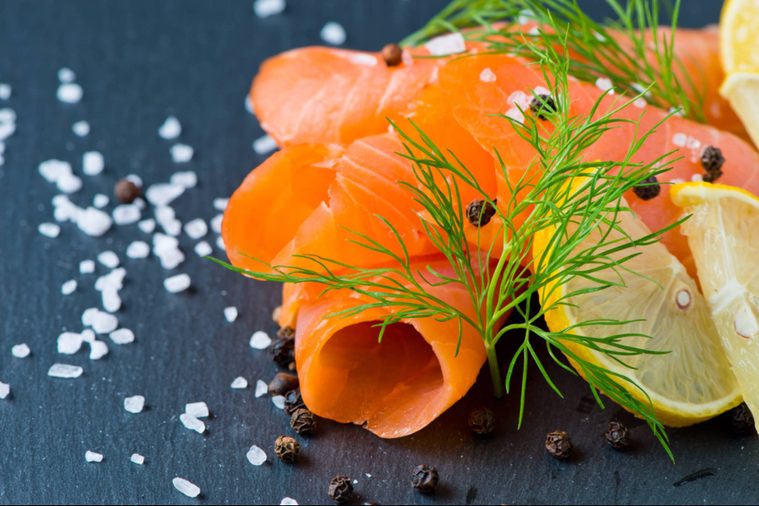
More food for thought
What other foods can benefit brain health? Among the best brain foods is salmon, rich in omega-3s. “DHA and EPA omega-3 fatty acids from marine sources have been found to be protective to the brain and contribute to improved memory function in older adults,” Palinski-Wade says. In addition, she says foods rich in vitamin C have been shown to reduce the impact of stress hormones, which can have negative effects on the brain. The overall message is to eat whole, healthy foods. “A diet rich in fruits, vegetables, and low in sodium, such as the DASH diet protocol, appears to be beneficial to the brain as it can help to reduce blood pressure, improve vascular health, and provide a diet rich in antioxidants that can be protective to neurons in the brain,” Palinski-Wade says. Don’t miss the other best foods for boosting brain health.

Certain foods are bad for brain health
One ingredient that can be bad for the brain is sugar. Although your noggin needs glucose to function, too much has been shown to have detrimental effects. “Avoiding large amounts of added sugar is also key to brain health,” Palinski-Wade says. “Even in teens, just one soda per day was associated with a decline in test scores.” In addition, too much sugar may accelerate aging of cells, according to Harvard Medical School. Diabetes, a high-glucose disorder, is also associated with negative consequences for brain function and can lead to cognitive difficulties. Here are more of the worst foods for your brain.

Food cravings come from the brain
For anyone who’s ever indulged in comfort food or “emotional eating,” it’s clear that the brain has something to do with the foods we crave. But, it may be more chemical in nature than we realize. “Certain amino acids are responsible for the creation of neurotransmitters in the brain, which impact mood,” Palinski-Wade says. “A depressed mood or high stress levels may trigger your brain to ‘crave’ foods that can produce feel-good chemicals such as serotonin to elevate mood, such as chocolate.” But, cravings may also have psychological ties—other research has found that the pleasant memories and feel-good hormones produced by “comfort foods” leads to a conditioned response of craving them.

Helmets don’t prevent concussions
According to the Weill Cornell Concussion and Brain Injury Clinic, helmets don’t actually stop the brain from banging around inside your skull, which is the cause of a concussion. But many people don’t realize this—one survey found that only a quarter of Americans understand that helmets can’t prevent concussions. Although studies show that football helmets aren’t very effective at reducing concussion rates, some companies are designing new ones they say work better. As for right now, what is the point of wearing one? Helmets prevent skull fractures, which injure your brain as well.

Brain health may start in the gut
Science is uncovering more and more info about how the bacteria in our gut, known as the microbiome, affects the brain. “Although we still have much to learn about the microbiome, animal studies indicate that gut bacteria may impact everything from mood to anxiety levels and even impact our response to stress,” Palinski-Wade says. “Since diet has a direct impact on gut bacteria, a diet rich in prebiotics and probiotics may help to alter gut health to favorably impact mood and fight against depression and anxiety.” Chemicals in gut bacteria may even have an influence on autism and other neurodevelopmental disorders, according to research. Learn the signs you have an unhealthy gut.
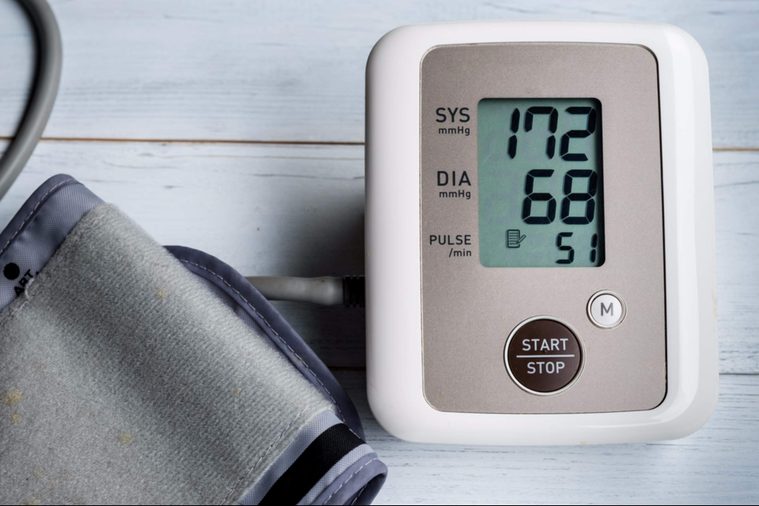
High blood pressure affects brain function
Since healthy brain function is linked with blood flow to the brain, it might not be surprising that studies show high blood pressure has a negative effect on cognition—as well as an increased risk for dementia and stroke. This is another reason to adopt a healthy diet and exercise regimen. “Regular exercise improves cardiovascular function and reduces blood pressure, which may help to protect the brain against damage that may increase dementia risk,” Palinski-Wade says.
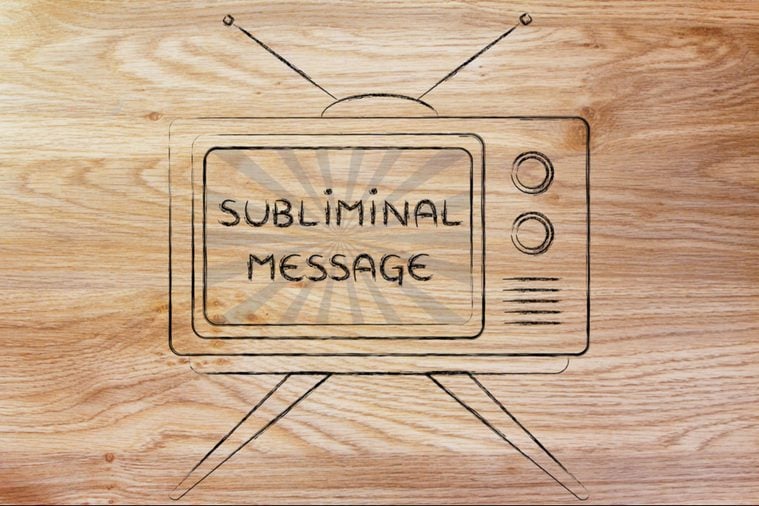
Your brain can register subliminal messages
Subliminal messages—brief words or pictures flashed on a screen quicker than the conscious mind can perceive—were first used in advertising in the 1950s, but were later banned. Although the validity of subliminal messages has been up for debate, some recent studies suggest they may be effective. In a Yale study, older participants’ self-perceptions and physical function improved after viewing a series of positive messages about aging. In another study, athletes were able to exercise longer when given subliminal motivating messages. Don’t miss these other 30 mind-blowing facts about the brain.

Intuition is a real thing
When you think you have a “gut feeling,” are you just imagining it? Turns out, there’s something to it. According to research, these hunches are the result of our brain storing, processing, and receiving information without our conscious mind realizing it. This intuition may rely on past experiences and external cues to form a quick reaction. The Office of Naval Research is even in the middle of a scientific project to understand the mechanisms behind instinct in order to improve Marines’ and Sailors’ ability to make split-second decisions. Find out how to tap into your own intuition.

But ESP is not a real thing
So if our hunches are real, does that mean ESP (extra-sensory perception) is? Not quite. According to a Gallup poll, 41 percent of Americans believe in ESP, which includes mind-reading, knowing things that are happening far away, and the ability to foresee the future. But no real scientific evidence for ESP has been found. Harvard researchers recently put ESP to a modern test—brain imaging—to see if participant’s brains reacted differently to ESP “stimuli” (such as a loved one in another room looking at the same photograph participants were). Their MRIs shows no difference. But you can get a healthy brain with these herbs.
